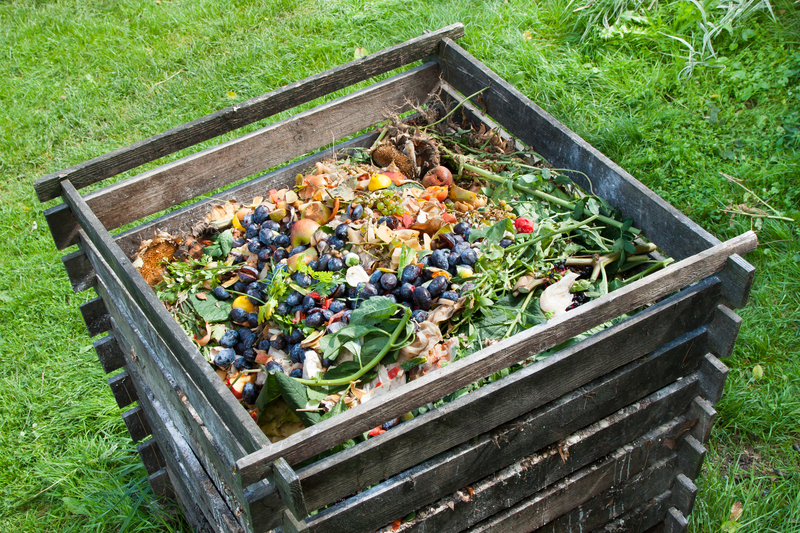Cut Costs When Clearing Out Bulky Waste Items: The Essential Guide
Are you planning to declutter your home, renovate a space, or dispose of old furniture and large household appliances? If so, you're probably wondering how to cut costs when clearing out bulky waste items. With proper planning, smart strategies, and a little research, you can save a significant amount of money while responsibly disposing of unwanted items. In this comprehensive guide, you'll discover the most effective ways to minimize your expenses and maximize efficiency, all while staying mindful of the environment.

Understanding Bulky Waste Disposal
Before jumping into detailed strategies for saving money, it's important to understand what qualifies as bulky waste. Bulky waste includes large items that are too big or heavy for regular trash collection, such as:
- Old sofas and armchairs
- Mattresses and beds
- Appliances (fridges, washing machines, ovens)
- Large electronics (TVs, monitors, computers)
- Wardrobes, tables, and other large furniture
- Carpets and rugs
- Fitness equipment
- Garden waste (branches, stumps, fences)
Most municipalities charge extra to collect these items, and improper disposal can result in fines. That's why knowing how to cut costs when clearing out large waste items is crucial for both your wallet and the environment.
Why Clearing Out Bulky Waste Can Be Expensive
Many homeowners are surprised by the costs associated with removing bulky waste. The expenses usually come from:
- Municipal collection fees
- Hiring private removal services
- Transportation and landfill charges
- Permit fees (for skip hire or certain items)
- Labor costs (if you can't move items yourself)
The good news? You can implement multiple strategies to minimize your spending during bulky waste clearance. Let's dive into the most effective tips.
Top Money-Saving Tips for Bulky Waste Removal
1. Donate Usable Items
Is your furniture, appliance, or equipment still in decent shape? Why not donate rather than dump them? Many charities, shelters, and secondhand stores accept gently used goods and may even collect them for free. This is a win-win: you cut costs while supporting your community and reducing landfill waste.
- Popular organizations to contact include:
- Salvation Army
- Habitat for Humanity ReStores
- Goodwill
- Local shelters and community centers
- Churches and non-profits
Tip: Always call ahead to confirm the organization's requirements and collection services.
2. Sell Your Bulky Items Online
Turn your trash into treasure! Platforms like Facebook Marketplace, Craigslist, OfferUp, and eBay make it easy to list items for free or at a low price. Many buyers are happy to collect items themselves, helping you save on transportation--and you might even make a little extra cash.
3. Give Away Items Locally
You'd be amazed by what your neighbors might want. Post your unwanted bulky items on local community boards, apps like Nextdoor, or in neighborhood Facebook groups. Use language like "free for pickup." This often results in fast removal at no cost.
4. Use Your Free Municipal Collection Allowance
Many municipalities offer free or subsidized bulky waste pickups once or twice per year. Check your town, city, or county website for details. If you only have a few items and can align with the permitted date, you'll clear them out at zero cost.
- Find out what's included (some exclude electronics or mattresses)
- Book your pickup slot early, as availability is limited
5. Share Costs with Friends or Neighbors
If you or your neighbors are all planning a clear-out, combine your efforts! You can pool resources to split the cost of:
- Hiring a skip (dumpster)
- Booking a man-and-van service
- Transporting items to the dump or recycling center
This not only saves money but is also more environmentally friendly by reducing the number of trips.
6. Recycle Responsibly
Many bulky waste items--such as metals, appliances ("white goods"), electronics, and certain plastics--are accepted at recycling centers or transfer stations. Some locations allow residents to drop off items for free or for a reduced fee, particularly if you separate recyclables from general waste.
- Look up your nearest recycling center and its accepted items
- Scrap metal can sometimes be sold for cash
- Check for electronics recycling events (often free)
7. DIY Transport to the Tip
If you have access to a vehicle (van or pickup), transporting your bulky waste items to the landfill or recycling center yourself is usually far cheaper than hiring a removal service. Make sure to secure objects properly, check your local site's fee structure, and wear gloves for safety.
Note: Some sites require proof of residency or charge extra for certain items, such as mattresses or refrigeration units.
8. Hire a Reputable, Low-Cost Waste Removal Service
If you must hire help, get at least three quotes and check online reviews. Ask about their pricing structure--is it charged by item, weight, or load size? Avoid hidden fees by getting a detailed written estimate. Compare pricing for a man and van service versus a skip/dumpster rental.
- Book well in advance for the best rates
- Consider off-peak times, as many companies offer discounts during weekdays or outside busy periods
- Ensure the company is properly licensed--fly-tipping fines can be significant
Bonus Tips for Saving Money on Bulky Waste Disposal
Separate Your Waste
Sorting items into categories before disposal can unlock additional savings:
- Metal: Take to scrap yards--sometimes you'll get paid!
- Wood and garden waste: Drop off at green waste centers
- Electronics: Seek out e-waste collection days, which are often free
- Hazardous materials: Dispose only at approved sites to avoid penalties
This approach often results in lower or waived fees since mixed loads typically cost more to process.
Break Down Items for Easier Handling
Disassemble large furniture and equipment yourself. Smaller pieces are easier (and sometimes cheaper) to transport and dispose of. Check if your town's policy on DIY waste affects the price--sometimes, it's free if items fit standard trash containers.
Ask For Community Cleanup Assistance
Some neighborhoods organize "community clear-outs" or special collection days. Watch your local notice board, newsletter, or council website to see if such events are coming up. Collection is often managed by the municipality at a drastically reduced price or even free of charge.
Use Free Online Platforms
Websites like Freecycle and Gumtree allow you to list items for free. Many people are looking for spare parts, project materials, or affordable furniture. Posting pictures and accurate descriptions increases the chance of a quick (and cost-free) collection.
Contact Appliance Retailers for Old Device Removal
If you're buying a new appliance, ask the retailer about their free or low-cost removal services for your old item. Many stores offer haul-away as part of their delivery or at a small additional charge, which is almost always less than independent disposal costs.
Green Disposal: Eco-Friendly and Cost-Efficient
Modern waste management is about more than just saving money. Environmental responsibility is a growing concern, and many disposal methods are both eco-friendly and economical. Prioritize donating, recycling, or upcycling over landfill disposal whenever possible.
Upcycling and Creative Reuse
If you have the time or creativity, consider repurposing old furniture or materials for new uses. For example:
- Turn wooden pallets or doors into garden planters
- Transform an old bed frame into a bench
- Use fabric from sofas for craft projects
Not only does this save money, but it also breathes new life into items and reduces overall waste.
Common Mistakes That Increase Bulky Waste Disposal Costs
Avoid these common, expensive errors when planning to clear out large household items:
- Mixing hazardous or restricted materials (e.g., paint, chemicals) with standard waste can lead to fines
- Failing to check what's accepted in regular trash pickups, resulting in surprise surcharges
- Booking last-minute removal services--advance planning almost always saves money
- Overfilling skips or dumpsters, which may require extra pickups or additional fees
- Neglecting to get rid of usable items through sale or donation first

Frequently Asked Questions About Bulky Waste Removal
Is it worth hiring a junk removal company?
It depends on your budget, the number of items, and your physical ability. Professionals save time and effort, especially for heavy or awkward items. Always compare costs, as DIY options are usually more affordable.
Are there free options for bulky waste disposal?
Yes--municipalities often offer free pickups, especially for electronics, white goods, and general bulky waste during designated cleanup periods. Giveaways and donations are also cost-free if you can find a recipient.
Can I leave bulky items by the curb?
Only if your council or city schedules curbside collection for such items. Otherwise, illegal dumping can result in heavy fines. Always verify your local regulations before leaving large items outside.
How do I dispose of hazardous materials?
Hazardous waste (including batteries, paint, chemicals, and some electronics) must be taken to specialized facilities. Never mix these with regular or bulky waste.
Conclusion: Save Smarter When Clearing Out Bulky Waste
Clearing out bulky waste items doesn't have to drain your wallet. By planning ahead, utilizing free and low-cost disposal options, combining resources, and prioritizing eco-friendly solutions, you can cut costs significantly. Remember to:
- Donate or sell items whenever possible
- Utilize municipal collection services
- Recycle and break down waste before disposal
- Always compare removal service quotes
- Stay informed about local regulations and cleanup events
By following these strategies, you'll not only save money but also help protect the environment. Ready to clear out your space? Start planning today and enjoy a cleaner, clutter-free home without breaking the bank!
